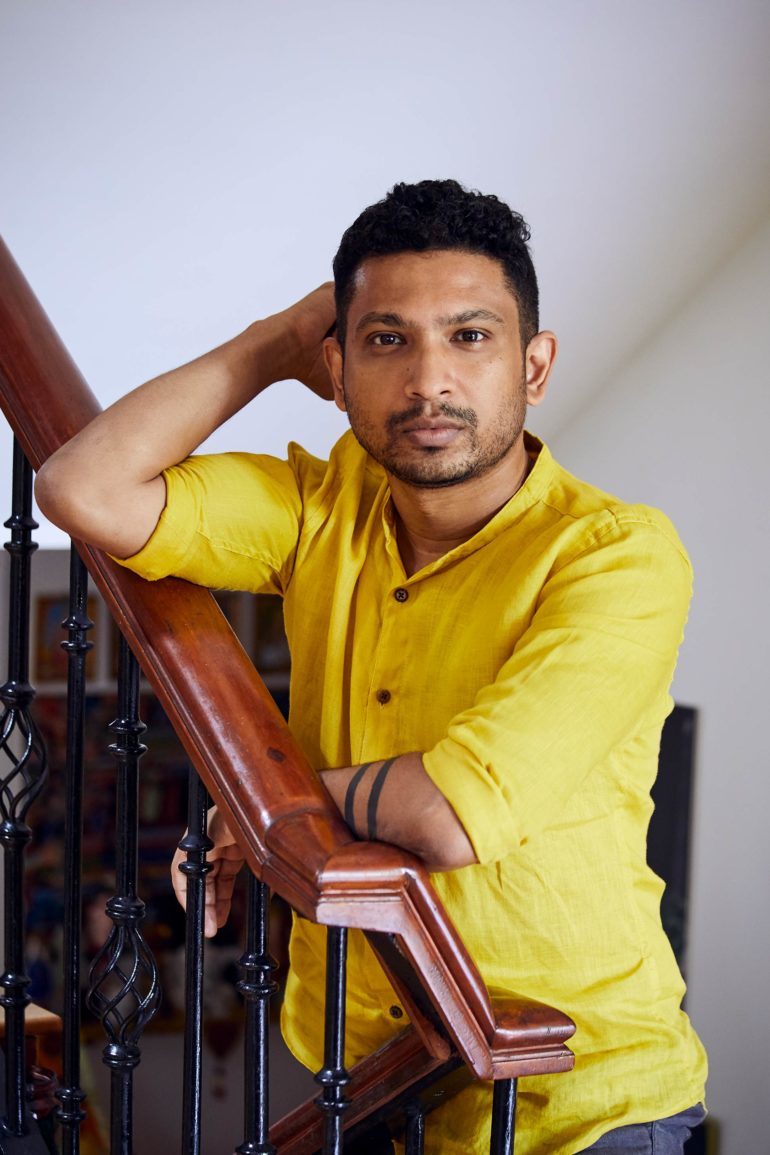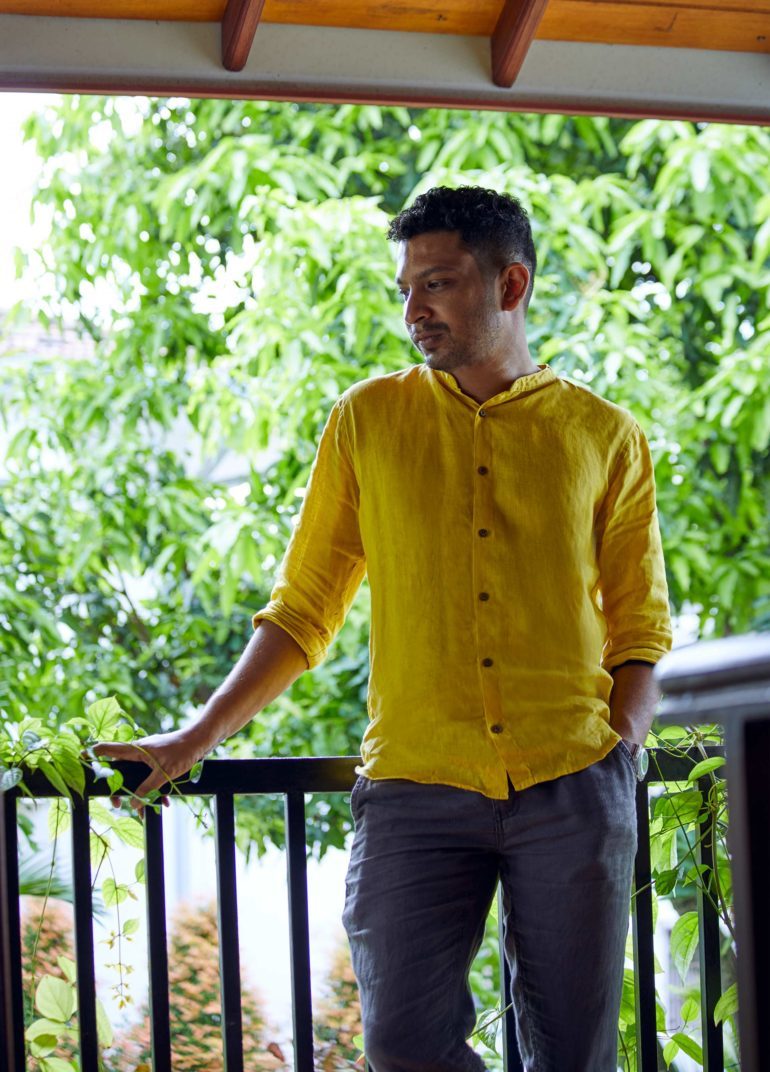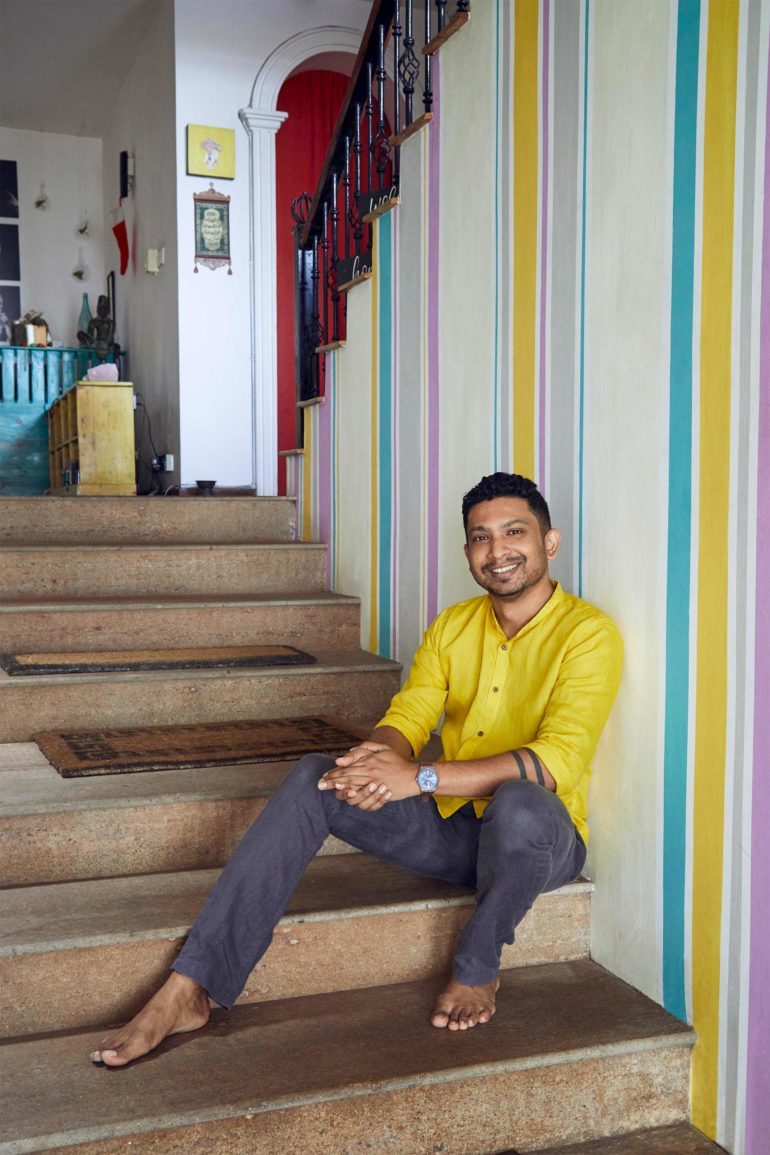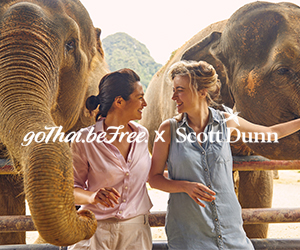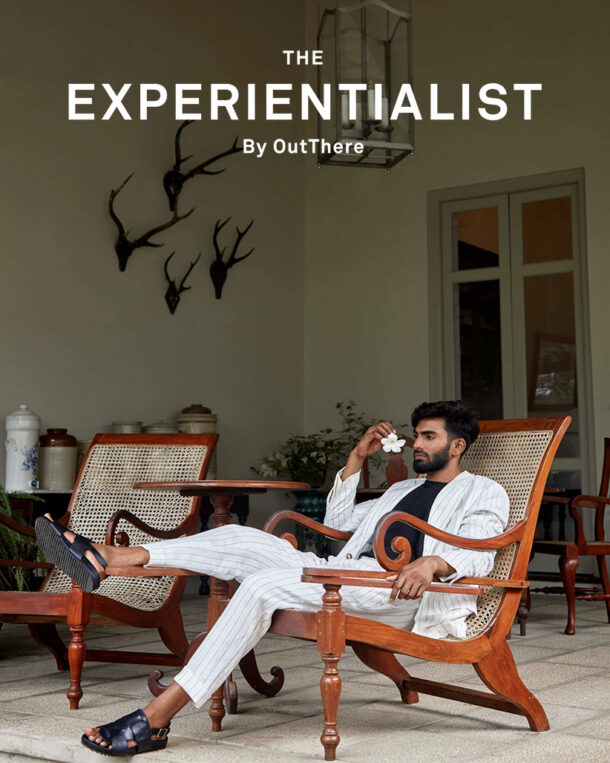Keenly aware of Sri Lanka’s complex cultural nuances around sexual and gender identity and as committed to advancing its native community as to its worldwide family, Foozoo couches its celebration of diversity and inclusion with judicious caution. And not without reason. The presence of a rainbow flag in their earlier Airbnb is, Dinesh believes, the reason the rental lease was suddenly cancelled by the landlady, almost sinking the company. Luckily, a friend who loved the Foozoo concept stepped in as an investor and co-director, ‘so instead of shutting up shop, we went bigger’. As they did so, the directors carefully refined an offer that enables LGBT+ travellers to be themselves without ‘attracting the wrong energies’. (Today, a pastel rainbow staircase in Mahasen Terrace flies a rather subtler flag.)
The company recruits and trains as many LGBT+ staff as it can without being discriminatory, many of them from isolated rural communities where deep denial would be their only option. It quietly promotes Colombo’s occasional underground gay party nights to LGBT+ guests and offers gay or gay-friendly tour chaperones. Home visits to LGBT+ Sri Lankans around the country can be organised and LGBT+ engagements, weddings and honeymoons arranged, drawing on a tried-and-tested network of supportive contacts and businesses all over the country. And for the ‘farewell dinners’ offered to guests, Dinesh will, for visitors interested in sharing first-hand insights into local experience, invite some LGBT+ friends over to share an evening of home-cooked food and conversation.
“We have amazing cultural riches tracing 3,000 years of unique history and remarkable diversity,” he says, “and, because of the 26-year civil war, which only ended in 2009, we escaped the super-accelerated development that swept many south Asian countries, so our landscapes are exceptionally wild and unspoilt. But for me the people of Sri Lanka are its greatest asset. And intimate, off-the-beaten-track contact with everyday local people is something we try to weave into everything we offer, tailored to each guest’s interests.”
Talking to Dinesh, I start to see his career-change as a reflection of an inner, spiritual trajectory, a suggestion he warms to. The ‘blind faith’ he says his traditional Christian upbringing instilled in him evolved with time and experience into a sense of the connectedness of all people and the drive to bring people together in a spirit of understanding, acceptance and mutual growth.
“Psychedelics helped, too,” he laughs, a little sheepishly. “Especially ayahuasca. I think if everyone were given a pill at some point, the world would be a better place. I need less of that superficial… stuff and more of what keeps my heart on fire.”
And he sees signs of increasing enlightenment all over his country.
“When I was at school, I didn’t have a word for what I was. I just knew I was different. Then one day, I found in a bookstore the novel Funny Boy by Sri Lankan author Shyam Selvadurai. It describes the life of a teenage boy growing up gay in Colombo against the background of the country’s Sinhala/Tamil tensions. For the first time, I found a narrative made relatable by the setting that showed me I was not alone, that others had my experience and that there was nothing wrong with me.”
Himself a part-time poet (he published Poem Person in 2012), Dinesh developed his own form of gentle, conciliatory activism over the following years, believing the only visible LGBT+ activism in the country at that time too confrontational and academic to connect with ‘everyday people’. He organised informal gatherings for LGBT+ people, free from the potentially intimidating context of protests or seminars and started online forums, seeking to normalise sexual and gender otherness with positive stories from around the world for both LGBT+ and mainstream communities. Meanwhile, the number of proudly out voices in Sri Lanka, while still marginal, steadily rises.
“Teenagers today know who they are. Through the internet and media they have lots of access to role models and support materials we didn’t have and that is giving rise to confidence. And the same channels are exposing non-LGBT+ people to these issues and giving them the conscious choice – ‘am I going to be tolerant about this or ignorant and hateful?’ So, while there has been no obvious dramatic shift, knowledge and understanding are spreading. It hasn’t yet hit critical mass and we don’t yet have the legal frameworks to tip us over to where India is right now, but we’ll get there.”
On a personal level, Dinesh finds his work’s greatest reward in contributing to this transition.
“Our approach at Foozoo is, first, the human, then the till, then the bill. That’s why we empower our staff to offer what we see as traditional Sri Lankan hospitality, responding to what they think the guest needs without being rigid about what services we offer and when. We always preferred staying at small places, because they have the flexibility for staff and guests to be themselves, for an intimate vibe where friendships form and service comes from the heart. One of our staff was extremely shy when he started, hardly spoke a word of English. And now he is like a bright star, running around, getting things done for our guests. Then we had a guest who emigrated here after his first-ever holiday to Sri Lanka. We’re all about creating unique, personalised experiences that might just change people’s lives.”
www.foozootravel.com | www.foozooinfinite.com
Interview by Rupert Mellor, photography by Martin Perry
At OutThere, we believe in boundless travel. But we understand that some destinations can pose challenges to travellers that complicate visiting them. We advise all visitors to inform themselves about local legislation and customs, and to work with a trusted travel provider in order to ensure a safe and pleasant holiday.


